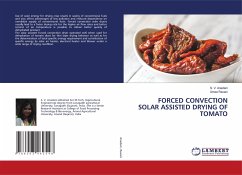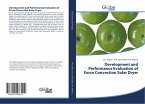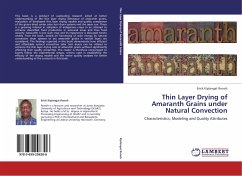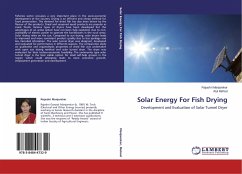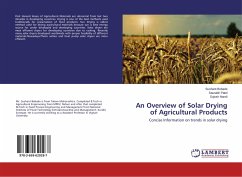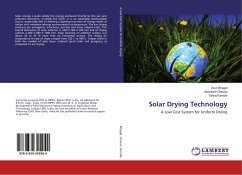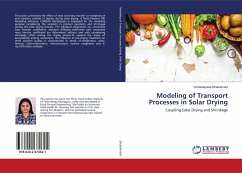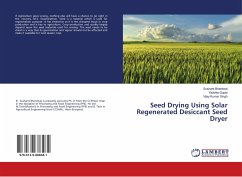Use of solar energy for drying crop results in saving of conventional fuels and also offers advantages of less pollution and reduced dependence on unreliable supply of conventional fuels. Forced convection solar dryers usually lead to a faster drying rate for the higher air flow rates and better control of air temperature is possible to obtain better quality of dehydrated product.The solar assisted forced convection dryer operated well when used for dehydration of tomato slices for thin layer drying behavior as well as for the determination of total specific energy requirement and contribution of specific energy by solar air heater, electrical heater and blower under a wide range of drying condition.
Bitte wählen Sie Ihr Anliegen aus.
Rechnungen
Retourenschein anfordern
Bestellstatus
Storno

